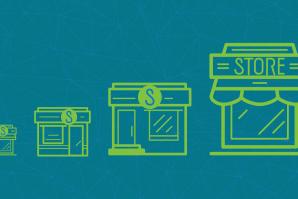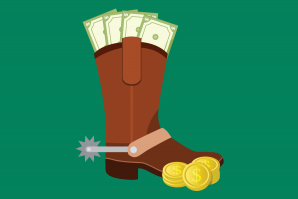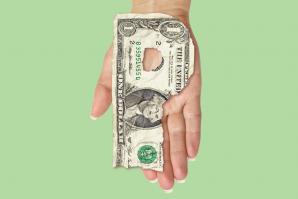/’frôTHē/, adj.
The market conditions preceding a bubble, where prices are overvalued and driven up, thanks to unsustainable demand.
I refuse to let anyone ruin “frothy” for me. You know what’s supposed to be frothy? Cappuccinos. Milkshakes. Seafoam-crested waves breaking on the shore. These are all nice things. You know what’s not nice? Unsustainable demand, unpredictable investor behavior and eventual market collapse.
And yet, here we find ourselves again, contemplating the ever-evolving nature of the English language. Jargon has taken this perfectly pleasant adjective — frothy — and forced it into working as a canary in the coal mine.
I don’t know how long frothy has been used to describe the phenomenon, but the concept has been around for as long as there have been markets: The famous Dutch “Tulip mania” in the early 1600s saw tulip bulbs traded for more than 10 times the average Netherlander’s annual income — only to fall to 1/100 the price within weeks of the market dropping out, sending economic shockwaves throughout Europe.
The Buzz
People use the word frothy to describe uncertainty in the market — basically, the time period or conditions before a bubble bursts, according to Steven Mills, general partner of DCA Capital Partners, an investment firm based in Roseville. “Some people would say tech companies are in an overpriced market,” he says. Recently, when companies such as Uber, Snapchat and Blue Apron went public, they were valued at much higher initial offerings than the companies were worth, leading to a drop in value once the market stabilized.
Snapchat’s IPO was at $17 when it went public last March. Today, Snap Inc. is trading around the $12 mark, and posted a $2.2 billion loss, according to The Motley Fool, and as a result its biggest underwriter, Morgan Stanley, recently downgraded their shares. (Bubbles are great until the one you’re sitting on pops.) Snapchat was unable to prove how they’d be able to grow, but had already offered their IPO at a falsely-high rate leading to a drop once the shares were revalued at a more realistic price — a warning for any other tech company blinded by dollar signs that go public too soon.
The Word
The most relevant modern-day example of a frothy market would be the U.S. housing market from 2005-07 — right before that bubble burst to terrible, nationwide consequences. Home prices peaked in 2006, but dropped suddenly and sharply in 2008 due to bad lending practices. This is widely considered the primary cause of the Great Recession.
“Frothy means asset prices are priced above their value, when there really isn’t a performance consistent with that value,” Mills says, of the housing crisis. “Obviously, those values were not sustainable.”
So be wary of froth, save some money and think critically about your investment practices.
Got a word that’s been buzzing around your office? Tweet us @Comstocksmag with the hashtag #WhatstheBuzz
Recommended For You

Buzzwords: Scalable
An ability to invest time and energy in systems that allow small businesses to grow while still handling increased demands.

Buzzwords: Bootstrap
The process of starting a business on a shoestring budget without external help or capital. Such startups fund the development of their company through internal cash flow.

Buzzwords: Unicorn
A company, usually a tech start-up, without an established performance record, but with a stock market valuation estimated at more than $1 billion.

Buzzwords: Pivot
Generally refers to a shift in entrepreneurial approach; describes the strategy most businesses employ to find the right customer, value proposition and positioning
For this month’s column, I thought I’d reach out to people who made multi-tasking an artform and get them to explain how they so easily “pivot” from one task to another on a daily basis. But I found out that’s only one definition of pivot, and so I pivoted this column to another, more business-oriented version. (See what I did there?)

Buzzwords: Empower
To make someone stronger and more confident; to give (someone) the authority or power to do something.
The word is overused, and overuse leads to misuse. (Misuse leads to annoyance, and then we’re at a place where no one even understands or cares what you mean.)
But “empower” is not just another piece of jargon to be casually tossed around:

Buzzwords: Viral
Any video, meme, picture or internet-based media that becomes popular through the process of sharing, social media or email.
To understand the definition of going viral, let’s borrow a phrase from former U.S. Supreme Court Associate Justice Potter Stewart: You’ll know it when you see it

Buzzwords: Parity
The complexities of wage parity are beyond equal pay for equal work
We’ll be hearing a whole lot of buzz about wage parity this year — in part because groundbreaking research conducted by New York University, University of Pennsylvania and the University of Haifa in Israel identifies flat-out gender bias as the elephant in the room affecting wage parity. This new study, titled “Occupational Feminization and Pay,” is the single most comprehensive study on wage parity in the U.S. to date.

Buzzwords: Ideation
Why is the buzz all about the ideation phase?
Ideation is the process of generating new ideas through open-minded brainstorming. Ideation is exciting, it’s creative, and it’s a great teambuilding activity.

Buzzwords: Ecosystem
Generally speaking, an ecosystem describes how different, complex organisms work together. How could a deeply biological term have invaded the usually-technical jargon of business? According to Google Trends, searches for “business ecosystem” and “innovation ecosystem” first entered the lexicon in the late ’90s and hit a peak within the last year.




